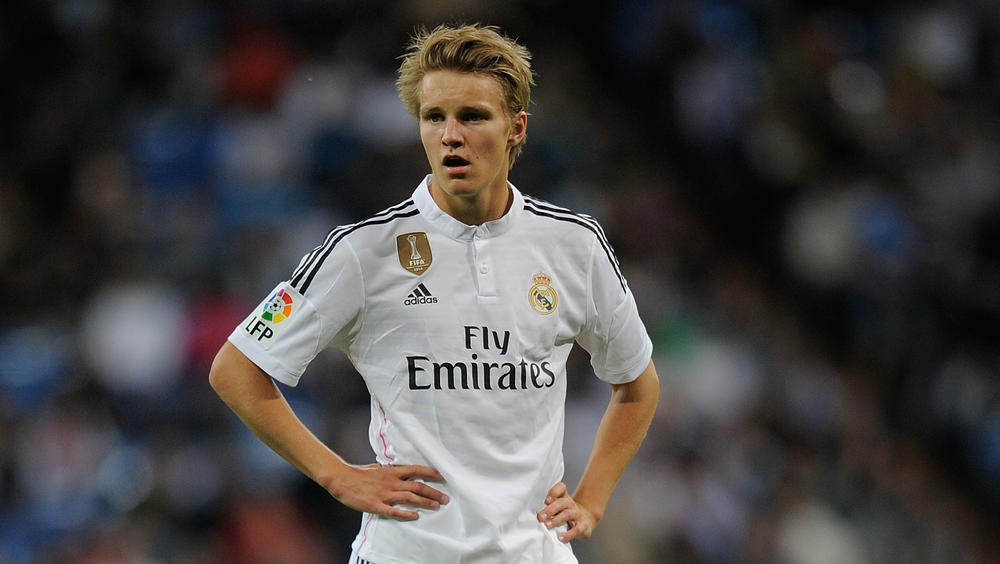Eat, drink and sleep like a footballer
We visited Championship side Aston Villa to find out how the club's players fuel their bodies and recover between games
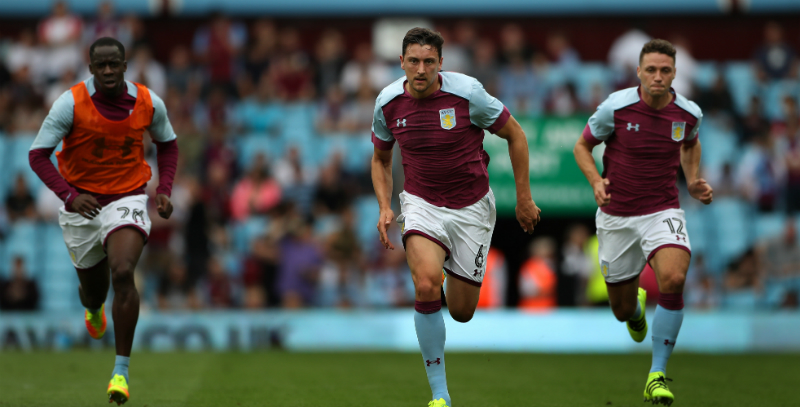
Aston Villa’s Bodymoor Heath training ground is a £15 million facility equipped with everything a footballer needs to stay at the top of his game. But before the club’s players set foot on one of the pristine training pitches or head to the gym, they’re educated on how to keep their body in shape.
Villa’s sports science department prepare a slideshow which they present to academy and first team players, detailing the basic information they need to ensure they’re eating and drinking correctly and using the right recovery techniques after training and matches.
FFT Performance were granted an exclusive look at the lesson delivered to the likes of Jack Grealish and Micah Richards, with the club’s former Head of Performance and Strength and Conditioning, Mike Watts, on hand to explain everything from how many carbohydrates players eat to using food blenders to get their five-a-day.
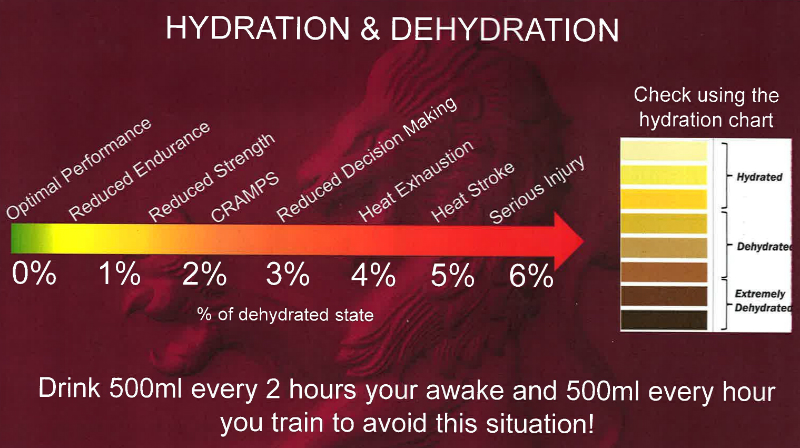
How much water do players drink?
Studies have shown Premier League footballers cover between eight and 13 kilometres on average during a 90-minute game. That level of exertion sees players' body temperature rise, resulting in large amounts of fluid - up to 1.68 litres - being lost through sweat. Even a one to two per cent reduction in hydration is enough to reduce physical performance, according to the California University of Pennsylvania.
Get FourFourTwo Newsletter
The best features, fun and footballing quizzes, straight to your inbox every week.
“We encouraged players to drink at least one litre during a training session,” says Watts, who left Villa this summer to start a new role with American sportswear brand Under Armour. “However, some players don’t like to drink water while they play and some don’t even like drinking water at all, which presents a real challenge.”
When dealing with such cases, Villa turn to modern methods of hydration to ensure players don't become dehydrated. “I really like High 5 zero hydration tablets,” he adds. “They maximise the body’s uptake of fluid and contain carbohydrates so they also get a hit of energy. Some players like sports drinks but they’re high in sugar and I’d only really advise drinking them at half-time.”
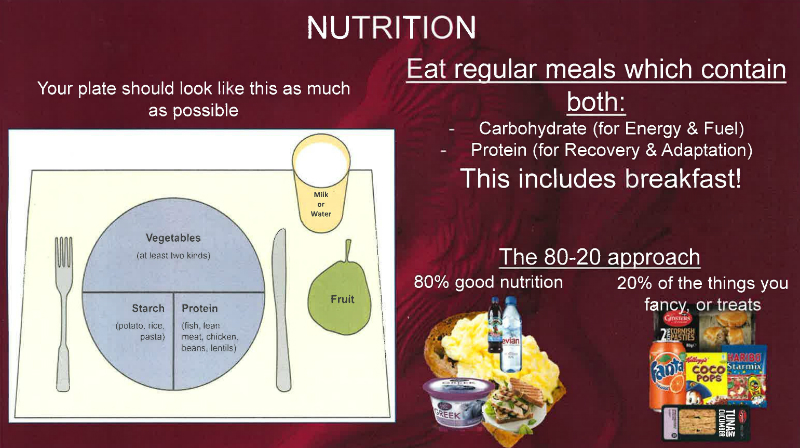
What do footballers eat?
Players don’t just lose sweat while they play. Research by the International Journal of Sport Nutrition and Exercise Metabolism revealed they can burn up to 16 calories per minute - that’s 1440 calories per game. As a result, the Championship club’s sports science staff make sure the playing squad are aware of at least the very basic foods they should be putting on their plate to ensure they fuel their bodies correctly before and after a game.
“The majority of players have no idea when it comes to the food they should be eating," he says. “We tried to put it into food terms rather than grams, for example telling them to eat two slices of wholemeal toast with eggs for breakfast. The timings of their meals are also vital - we don’t want them eating five minutes before they play - they should be eating at least an hour before."
Related story: Eat for the off-season
The performance expert also made nutritional drinks for each player after training using a food blender to ensure their diets were rich in protein and vitamins. "Last season we used a Nutribullet and put a couple of scoops of protein in, half a banana and a handful of berries, strawberries or blueberries so they got an anti-oxidant hit. We also encourage them to have vegetables with every meal. You’ll often see players eat just meat and pasta, which isn’t good."
Watts is also quick to stress the importance of carbohydrate intake. “You need 60g per hour of exercise and don't listen to people who say you shouldn’t eat carbs after 6pm. In Spain and other European countries they’ll eat a big evening meal with carbohydrates at 8 or 9pm and they remain healthy. The human anatomy of an English player is no different to that of a Spanish player. It’s all about common sense - if you’re not training have a smaller portion in the evening.”
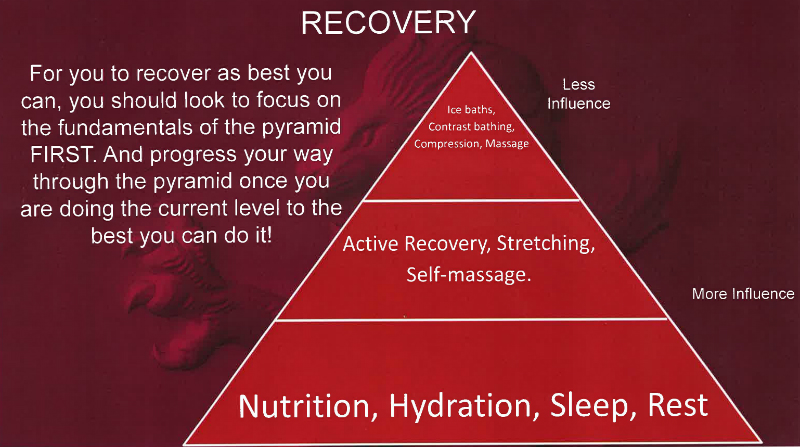
The road to recovery
Last season Villa played 44 games between August and May, while their relegation to the Championship means they will have to deal with 46 league games as well as a host of cup fixtures this term. That workload means the club use a range of recovery techniques to reduce the risk of injury and manage the fitness of their playing squad.
“I really like foam rolling; it’s something that can be done post training and matches,” says Watts. “Cold water immersion is another great way of reducing muscle soreness and I like some form of low intensity activity after a game as well, for example spinning on a bike or even just walking to accelerate recovery. There’s some interesting thoughts and ideas around the benefits of holistic type techniques which can help players, such as earthing, which involves walking barefoot on rocks and having contact with the ground.”
Watts also believes psychology and what a player believes is working for them can play a big role in recovery even if the science doesn’t always back it up. “Sometimes you have to bite your tongue," he adds. "If a player says he feels more relaxed and he thinks something is having a positive effect then you need to let them get on with it. Ninety-five per cent of players won’t listen to you anyway, so getting them to do just one or two things to aid their recovery is a success!
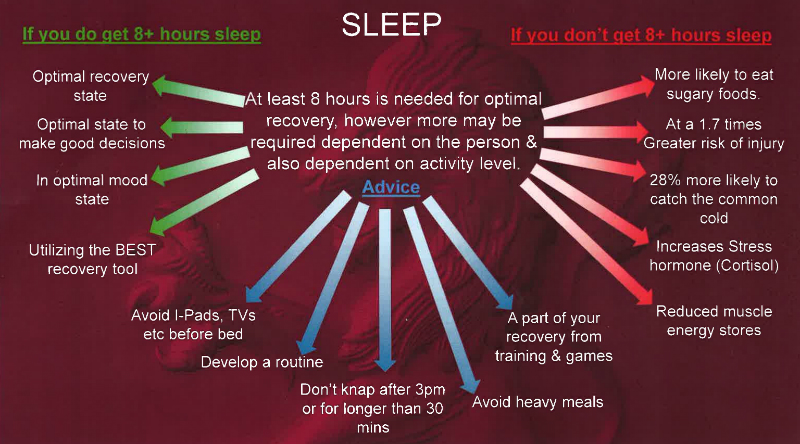
Sleeping isn’t cheating
While quality food, nutrition and hi-tech technology all help to speed up a player’s recovery, there’s still no substitute for a good night’s sleep. A study by Stanford University sleep expert Cheri Mah showed basketball players who increased their sleep duration to up to 10 hours improved shot accuracy by 9% in tests and recorded improved sprint and reaction times.
The benefits of rest have not been lost on football, with the likes of Real Madrid, Manchester City, Southampton and Manchester United all seeking the expertise of renowned sleep coach, Nick Littlehales, to ensure their players get a good night’s kip - and Watts says Villa are another club who have advised players on their sleeping habits.
Related story: How to sleep yourself sharp
“Sleep is the most important area of recovery. Without sleep nothing else recovers properly and that goes from recovering from exercise, adapting from exercise and preparing for performance.”
However, while some experts recommend eight, nine and even 10 hours sleep, the optimal amount of rest can depend purely on the individual. “I’d recommend around seven or eight hours sleep but it varies," adds Watts. "It’s not in our culture but the Europeans will have a nap and I think that’s a good idea. Twenty to 40 minutes in the afternoon can be a good boost.
“Sleep hygiene – having a good temperature and a dark room is important. About 18 or 19 degrees is optimal. Not too much caffeine is important. Don’t go to bed on a full stomach. Players must also avoid too much stimulation on ipads, Playstation and bright screens which can reduce levels of melatonin - the hormone which helps you get to sleep.”
Recommended stories:
